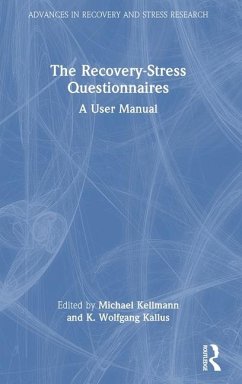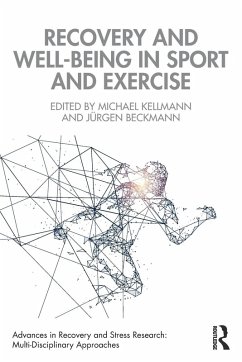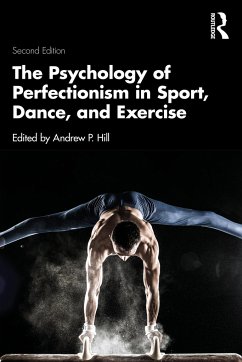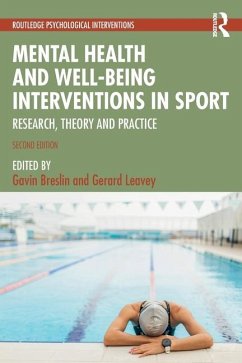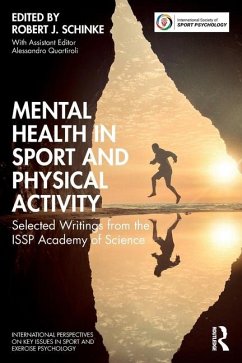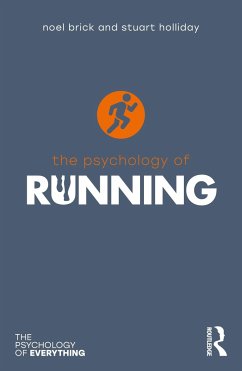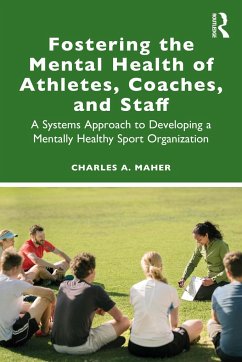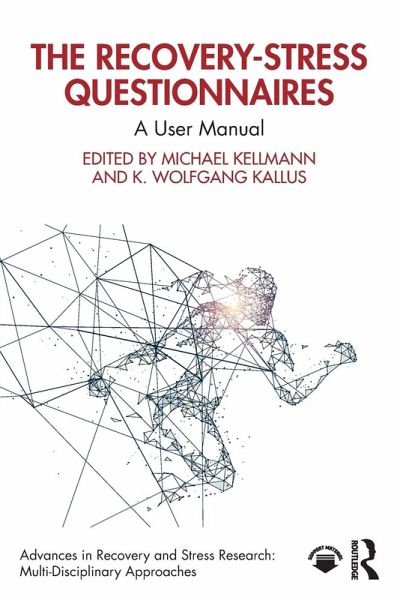
The Recovery-Stress Questionnaires
A User Manual
Herausgegeben: Kellmann, Michael; Kallus, K. Wolfgang
Versandkostenfrei!
Versandfertig in 6-10 Tagen
82,99 €
inkl. MwSt.

PAYBACK Punkte
41 °P sammeln!
The Recovery-Stress Questionnaires (RESTQs) identifies the current recovery-stress states and provides a complete picture of the actual extent of stress and recovery. Written to support those using the RESTQ, this manual offers advice on scope and application, facets of stress and recovery, versions and scoring, interpretation of results, and reliability and validity for each of the five forms of the questionnaire.The questionnaire is based on the hypothesis that an accumulation of stress in different areas of life, with insufficient opportunity for recovery, leads to a critical psychophysiolo...
The Recovery-Stress Questionnaires (RESTQs) identifies the current recovery-stress states and provides a complete picture of the actual extent of stress and recovery. Written to support those using the RESTQ, this manual offers advice on scope and application, facets of stress and recovery, versions and scoring, interpretation of results, and reliability and validity for each of the five forms of the questionnaire.
The questionnaire is based on the hypothesis that an accumulation of stress in different areas of life, with insufficient opportunity for recovery, leads to a critical psychophysiological state. The RESTQ measures the frequency of current stress symptoms along with the frequency of recovery-associated activities to offer a differentiated picture of the current recovery-stress state. There are five forms of the RESTQ: a general version (RESTQ-Basic) with seven stress scales and five recovery scales is the foundation for the specific versions for athletes (RESTQ-Sport), for coaches (RESTQ-Coach), for children and adolescents (RESTQ-CA), and for the work context (RESTQ-Work). All versions take a modular structure and contain scales measuring specific aspects of stress and recovery in their field. These scales provide valuable information immediately on areas where improvement is needed in stress and recovery research across a range of applied settings.
Drawing on experiences and scientific findings from sport to make them usable for an expanded understanding of recovery in the fields of health, work, and other related areas, this manual is written for the scientific community, applied psychologists and health scientists, and interested readers.
The questionnaire is based on the hypothesis that an accumulation of stress in different areas of life, with insufficient opportunity for recovery, leads to a critical psychophysiological state. The RESTQ measures the frequency of current stress symptoms along with the frequency of recovery-associated activities to offer a differentiated picture of the current recovery-stress state. There are five forms of the RESTQ: a general version (RESTQ-Basic) with seven stress scales and five recovery scales is the foundation for the specific versions for athletes (RESTQ-Sport), for coaches (RESTQ-Coach), for children and adolescents (RESTQ-CA), and for the work context (RESTQ-Work). All versions take a modular structure and contain scales measuring specific aspects of stress and recovery in their field. These scales provide valuable information immediately on areas where improvement is needed in stress and recovery research across a range of applied settings.
Drawing on experiences and scientific findings from sport to make them usable for an expanded understanding of recovery in the fields of health, work, and other related areas, this manual is written for the scientific community, applied psychologists and health scientists, and interested readers.





